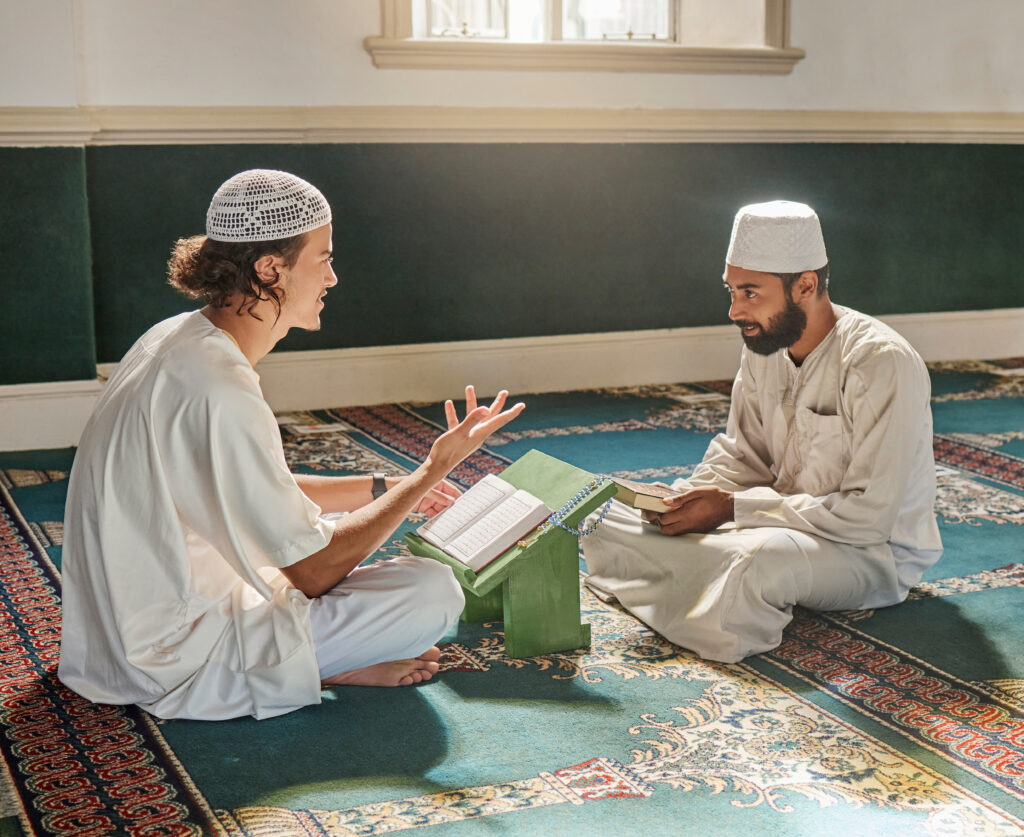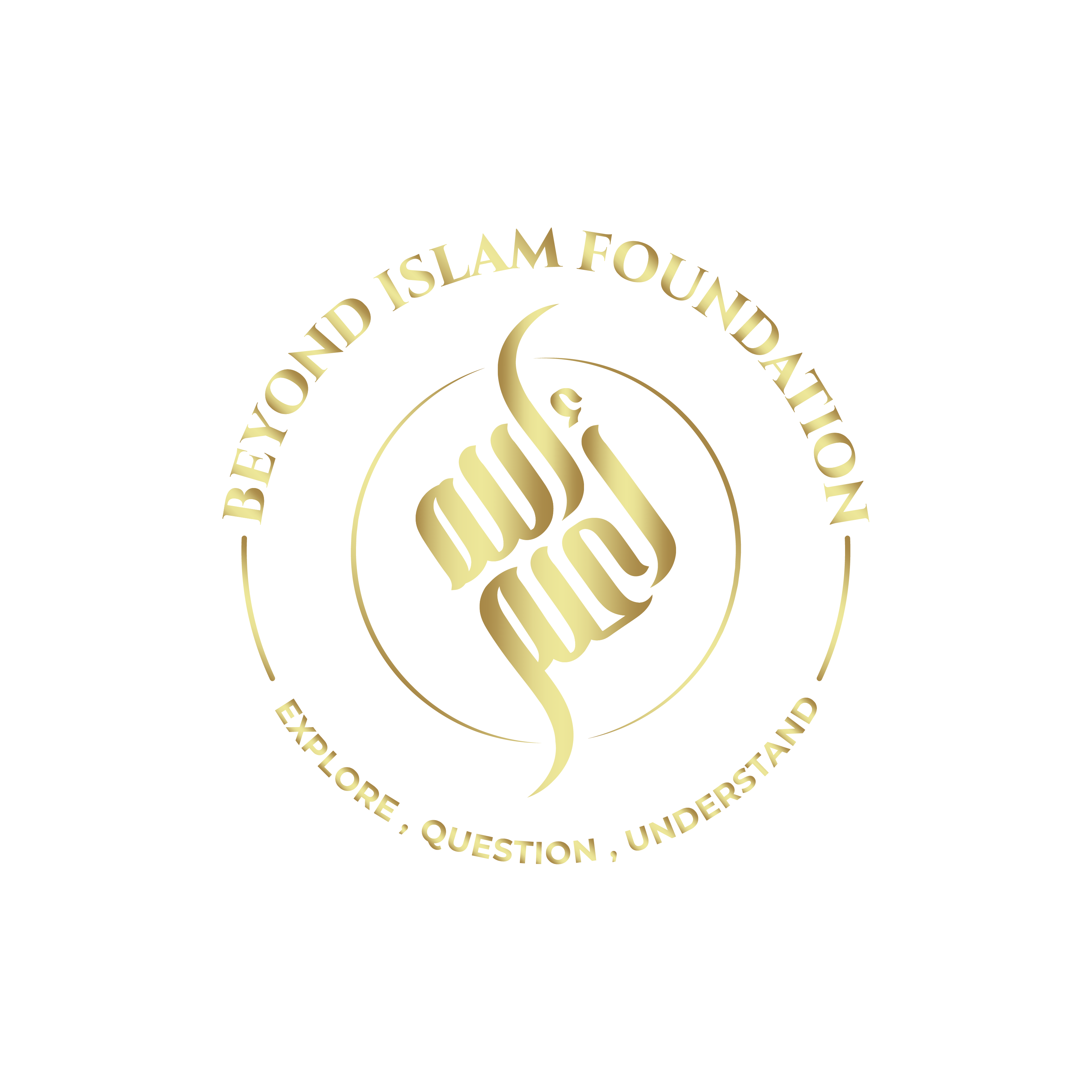Introduction: Knowledge as a Divine Command
📖 “Read in the name of your Lord who created.” (Qur’an 96:1)
Education and the pursuit of knowledge are central themes in the Qur’an. Unlike modern education systems that often prioritize material success, the Qur’anic model emphasizes intellectual, spiritual, and ethical growth. Historically, this approach shaped great centers of learning such as Al-Qarawiyyin and the House of Wisdom, where scholars integrated religious and secular knowledge to advance human understanding. Knowledge in the Qur’an is not limited to religious teachings but extends to all fields of learning that benefit humanity and promote justice.
This article explores the Qur’anic principles of education, the value of critical thinking, and the responsibility of knowledge seekers in society.

1. Seeking Knowledge as an Obligation
📖 “Say, Are those who know equal to those who do not know?” (Qur’an 39:9)
📖 “Allah will raise those who have believed among you and those who were given knowledge, by degrees.” (Qur’an 58:11)
Key Observations:
- The Qur’an elevates those who seek knowledge.
- Education is a lifelong pursuit, not limited to formal schooling.
- Both men and women are equally encouraged to seek knowledge.
Islamic history reflects this emphasis on learning, as early Muslim civilizations led advancements in science, mathematics, medicine, and philosophy.
2. Education Must Promote Critical Thinking and Reflection
📖 “Do they not reflect upon the Qur’an, or are there locks upon their hearts?” (Qur’an 47:24)
📖 “And He shows you His signs so that you may reflect.” (Qur’an 2:266)
Key Observations:
- The Qur’an repeatedly calls for reflection and reasoning.
- Blind following is discouraged; knowledge must be critically analyzed.
- A true education system nurtures independent thinking and wisdom.
The Qur’anic model of education encourages curiosity and questioning rather than passive acceptance of information. This principle was exemplified by scholars such as Al-Farabi, who emphasized logic and philosophy, and Ibn al-Haytham, whose method of empirical observation laid the foundation for the modern scientific method.
3. The Role of Teachers and Scholars
📖 “It is only those who have knowledge among His servants who truly fear Allah.” (Qur’an 35:28)
📖 “And We sent not before you except men to whom We revealed, so ask the people of knowledge if you do not know.” (Qur’an 16:43)
Key Observations:
- Teachers and scholars hold a position of responsibility and integrity.
- They must guide with wisdom and not distort knowledge for personal gain.
- A knowledgeable person should be humble and continuously seek the truth.
Education is not just about gaining information but about nurturing character and responsibility in knowledge bearers. In modern educational systems, this principle can be applied by integrating ethics courses, promoting service-based learning, and encouraging mentorship programs where students learn not only academic knowledge but also moral responsibility and leadership skills.
4. Education Should Integrate Ethics and Morality
📖 “And do not mix the truth with falsehood or conceal the truth while you know it.” (Qur’an 2:42)
📖 “He has succeeded who purifies himself, and mentions the name of his Lord and prays.” (Qur’an 87:14-15)
Key Observations:
- Education is incomplete without ethics and moral responsibility.
- Knowledge should be used for good, not manipulation or corruption.
- True learning refines a person’s character and actions.
The Qur’anic approach ensures that education is not merely about intellect but also about nurturing righteousness.
5. Science, Reason, and the Pursuit of Worldly Knowledge
📖 “We will show them Our signs in the horizons and within themselves until it becomes clear to them that it is the truth.” (Qur’an 41:53)
📖 “And He taught Adam the names of all things.” (Qur’an 2:31)
Key Observations:
- Science and exploration are encouraged in the Qur’an.
- Discovering the natural world leads to a greater understanding of divine wisdom.
- Both religious and secular knowledge contribute to human progress.
Islamic history is rich with scholars who combined faith with reason, leading to innovations in medicine, astronomy, and engineering. Figures such as Ibn Sina (Avicenna) advanced medical sciences, Al-Biruni contributed to astronomy and geography, and Al-Khwarizmi laid the foundation for modern algebra, demonstrating how knowledge flourished through the integration of faith and reason.
6. The Qur’anic Alternative to Modern Education Systems
📖 “And do not pursue that of which you have no knowledge. Indeed, the hearing, the sight, and the heart—about all those [one] will be questioned.” (Qur’an 17:36)
Key Observations:
- Education should serve a higher purpose beyond economic success.
- Current education models often neglect ethics and spiritual development.
- A balanced system nurtures intellectual, ethical, and emotional intelligence.
Unlike modern education, which prioritizes material success, the Qur’anic model integrates intellectual growth with spiritual and moral refinement. This can be effectively incorporated into modern education by emphasizing interdisciplinary learning that connects ethics with science, incorporating mindfulness and reflection practices into curricula, and fostering a culture of inquiry that values both worldly knowledge and moral wisdom.
Conclusion: Implementing a Qur’anic Vision for Education
The Qur’an presents education as a means of enlightenment, self-improvement, and service to humanity. It encourages reflection, critical thinking, and ethical responsibility, ensuring that knowledge is used for the benefit of society.
Are you ready to embrace knowledge as a divine responsibility? Engage in continuous learning, question with sincerity, and apply knowledge to improve yourself and your community. By aligning education with Qur’anic principles, we foster a society of wisdom, integrity, and true progress.
